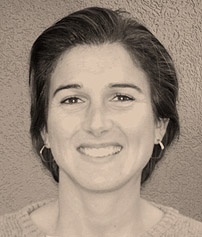|
Palestinian youth make
documentary
films

By
Vicky
Samantha Rossi
TFF
Associate and Board member
Comments directly to
vickyrossi555@gmail.com
December 2, 2007
November 29 is the International Day of Solidarity with Palestinian People.
On the eve of 60 years since the flight of the first Palestine refugees in 1948, it is more important than ever to return the spotlight to the Palestinian people, their narrative and their on-going struggle…
Through art, craft and music, the Palestinian story and, as an integral part of that, the life of 1948 and 1967 refugees can be narrated in a creative and purposeful way. This is a vision shared by the Dar al-Kalima College in Bethlehem that offers 2-year diploma courses in arts, multimedia and communications. “Palestinians have a story to tell which needs to be told through their own eyes. We must show that we are a people who are part of the human civilization and that we have something to offer the rest of humanity”, says Nuha Khoury, dean of the Dar al-Kalima College.
28-year-old Thaer Al-Azzeh and 22-year-old Manar Ramadan from the Deheisheh (1) refugee camp are 1st year Dar al-Kalima students enrolled on the Documentary Film-Maker Diploma course. One of Thaer’s motivations for studying film-making is simply professional, namely, he hopes to find work in that specific field; however, he is also driven by the will to find a medium through which to portray the challenges faced by the Palestinian people.

Thaer Al-Azzeh, left, and the author
He sees these as two-fold; the challenges within Palestinian society itself, which he feels have worsened since the start of the 2nd Intifada in 2000; and the challenges of living under occupation. “People fled from the land. We must speak about this,” says Thaer. “Films are not just for fun”, he explains, “They are meant to fix problems. Documentaries can make important information available even to people who can’t read or write. They can help people to imagine another way, to find solutions.”
Ever since Manar was a young girl she has wanted to create something of her own. Now she has found a channel through which to do precisely that. She feels that through documentary films the Palestinian story can be more accurately told, “I can tell the world about Palestine. When they see the film, they will change their minds.” She hopes that her first full length documentary film will focus on the problems faced by handicapped children. Manar says there are many films about the cramped living conditions in refugee camps, so she prefers to focus on one specific group in the camp and investigate the physical and social challenges that they in particular face.
Sadly, on the eve of 60 years since the flight of Palestine refugees in 1948, Thaer and Manar struggle to be optimistic about the future. “My grandparents believed that they would go back to their land,” says Manar, “For me, I have no hope that I can return, although it is still my dream.” Even in the midst of apparent hopelessness, however, Manar and Thaer express the Palestinian spirit of samoud in their determination to use the medium of documentary film-making to return the Palestinian narrative to the eyes of the world.
Note:
I would like to thank fellow student Hiba Nasser for her help with the Arabic-English translation.
Footnote:
1. Dheisheh refugee camp http://www.un.org/unrwa/refugees/westbank/dheisheh.html
Dheisheh camp was established in 1949 within the municipal boundaries of Bethlehem on 430 dunums. Registered refugee population: 12,045.
Copyright © TFF &
Rossi 2007
Tell a friend about this column/interview by Vicky
Rossi
Send to:
From:
Message and your name
Get
free articles & updates
|